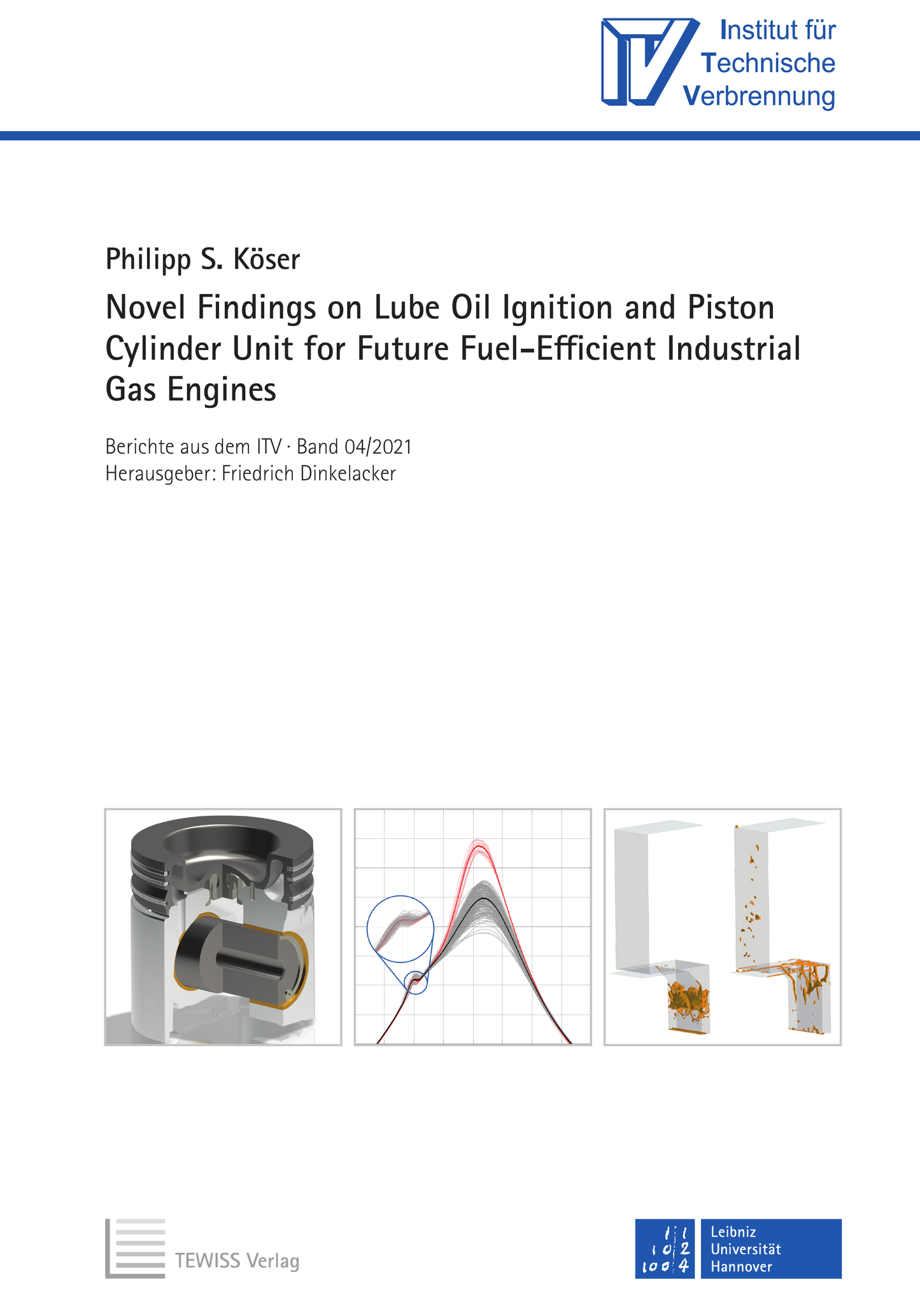Novel Findings on Lube Oil Ignition and Piston Cylinder Unit for Future Fuel-Efficient Industrial Gas Engines
Autor: Philipp S. Köser
ISBN: 978-3-95900-621-7
Dissertation, Leibniz Universität Hannover, 2021
Herausgeber der Reihe: Friedrich Dinkelacker
Band-Nr.: ITV 04/2021
Umfang: 230 Seiten, 115 Abbildungen
Schlagworte: Lube oil ignition, piston cylinder unit, engine efficiency, natural gas engine, special engine measurements, advanced simulations
Kurzfassung: The increasing demand for fuel-efficient engines for power generation requires continuous improvement of the thermal efficiency. Gas engines allow clean and efficient combustion. In addition to knocking and misfiring, lube oil ignition was uncovered as further combustion limitation in gas engines.
To understand the lube oil ignition phenomenon in detail, multiple engine experiments and simulation have been performed. Based on the results and finding, a conceptual oil transport model was developed leading to the anomalous combustion. The involved key mechanisms include oil leakage through the OCR gap, scraping by compression rings, oil transport into the top ring groove and crown land, and the interaction with charge motion.
An optimized design of the piston group was proposed to minimize the oil transport without compromising friction and wear, leading to a development approach that enables frontloaded design of the piston cylinder units for future natural gas and hydrogen engines.


